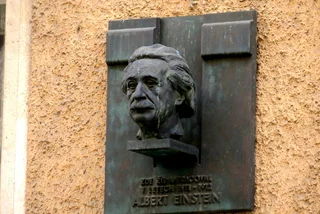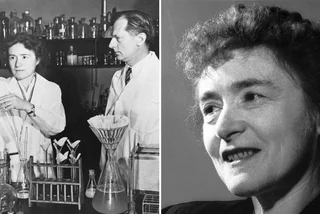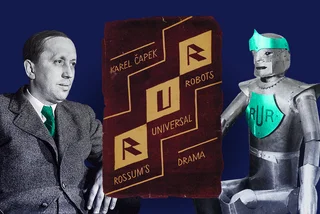The Nobel Prize, established by Swedish inventor Alfred Nobel in 1895, is a prestigious international award given annually for outstanding contributions in fields like physiology, physics, chemistry, literature, peace, and economics. It recognizes individuals or groups for their significant contributions to humanity through groundbreaking work.
The 2023 Nobel Prize winners will be announced throughout this week. On Monday, the Nobel Prize in Physiology or Medicine went to Katalin Kariko and Drew Weissman for their pioneering research, which contributed to the development of Covid-19 vaccines. On Tuesday, Pierre Agostini, Ferenc Krausz, and Anne L’Huillier received the Nobel Prize in Physics for their significant contributions to electron dynamics.
While Czechia can lay claim to six Nobel laureates, there are also several distinguished Czechs and individuals with Czech ancestry who have been nominated for the prize. Among them are deserving individuals who are now believed to have been unfairly denied the award due to political reasons, as well as Nobel heavy-hitters with a connection to the country.
Bertha Felicie Sophie Suttner
Bertha Felicie Sophie Suttner (née Countess Kinsky of Wchinitz and Tettau) was born in Prague in 1843. She was a renowned novelist and one of the early prominent female pacifists. The publication of her novel Die Waffen nieder (Lay Down Your Arms) in late 1889 had a profound public impact due to its stark portrayal of militarism.
In 1905, Suttner was awarded the Nobel Peace Prize for her dedicated peace activism. She was the second woman in history to receive a Nobel Prize and the first woman to be awarded the Nobel Peace Prize. Her compatriots Tomáš G. Masaryk, Eduard Beneš, and Václav Havel were also considered for the Peace Prize.
Did you know? Another Nobel Peace Prize winner has ties to Czechia. In recognition of his vision for a world without nuclear weapons outlined in his 2009 Prague Agenda, former U.S. President Barack Obama was awarded the Nobel Prize. His efforts included initiating negotiations for a new arms control treaty with Russia, leading a UN Security Council meeting on nuclear disarmament, and committing to securing loose nuclear materials.
Carl and Gerty Cori
Carl Ferdinand Cori and Gerty Theresa (Radnitz) Cori were accomplished scientists born in Prague. The couple conducted groundbreaking research in carbohydrate metabolism and enzymology. They elucidated the pathway of glycogen breakdown in animal cells, identifying key enzymes and metabolic processes. Their work culminated in the discovery of glucose-1-phosphate, which was linked to phosphorylase activity. In 1947, the Coris received the Nobel Prize in Physiology or Medicine for their exceptional contributions to science.
Bloody unfair: Jan Janský, a Czech serologist, neurologist, and psychiatrist, is credited with discovering the first classification of blood into the A, B, AB, and O blood types, which laid the foundation for the ABO blood group system. Despite his major contribution to medicine, he did not receive the Nobel Prize for his work. In 1917, an American medical commission recognized Janský's classification over that of Karl Landsteiner, who won the Nobel Prize in Physiology or Medicine in 1930 for a similar discovery. Janský's classification system remains in use today.
Jaroslav Heyrovský
Jaroslav Heyrovský, born in Prague in 1890, was a Czech scientist known for his pioneering work in polarography, a method for chemical analysis. He studied chemistry, physics, and mathematics at Charles University in Prague and, in 1922, discovered a method for analyzing the occurrence and content of various substances in solutions using electrical measurements. His work led to the development of polarography, earning him the Nobel Prize in Chemistry in 1959.
Mom of the A-bomb: In 1938, Otto Hahn, Fritz Strassmann, and Lise Meitner, a Viennese physicist of Czech-Jewish heritage discovered nuclear fission, leading to Hahn's 1944 Nobel Prize in Chemistry. Many believe that Meitner's pivotal role went unrecognized. Overcoming educational barriers, she excelled in Germany, where her collaboration with Hahn was instrumental in making the discovery. Meitner's contributions were posthumously acknowledged after she died in 1968. Her legacy as one of the most significant scientists of the 20th century is now recognized, despite the Nobel Prize eluding her during her lifetime.
Jaroslav Seifert
In 1984 Jaroslav Seifert, a Czech writer born in Prague in 1901, achieved the distinction of becoming the first Czech Nobel laureate in Literature. Seifert's poetry encompassed themes of Czechoslovakia's history and diverse aspects of life, extending to children's literature and journal contributions. He signed the Charter 77 petition in 1977, opposing Gustáv Husák's rule, and penned his memoirs in 1981. His work was described by the prize committee as "endowed with freshness, sensuality and rich inventiveness provides a liberating image of the indomitable spirit and versatility of man."
I think Newt: Czech author Karel Čapek was nominated seven times for the Nobel Prize in Literature, between 1932 and 1938 though never received it. Čapek came close to winning but ultimately did not receive the award as Sweden purportedly considered the author's War With the Newts too anti-fascist and feared Hitler's reaction. Čapek declined to suggest a non-controversial publication that could be cited as a replacement, saying: "Thank you for the goodwill, but I have already written my doctoral dissertation."
Peter Grünberg
Born in Pilsen in 1939, Peter Grünberg was a Czech-German physicist known for his work on giant magnetoresistance (GMR), which revolutionized gigabyte hard disk drives. Grünberg's family was expelled from Czechoslovakia in 1946, and he pursued his education in Germany and later conducted postdoctoral work in Canada. Grünberg discovered GMR simultaneously with and independent of French physicist Albert Fert. He was awarded the Nobel Prize in Physics together with Fert in 2007.
Einstein in Prague: Albert Einstein's time in Prague from 1911 to 1912 played a crucial role in his journey toward the Nobel Prize in Physics and the development of his groundbreaking theory of relativity. During his 17-month stay, Einstein authored 11 scientific papers, five of which focused on radiation mathematics and the quantum theory of solids. He personally translated his renowned volume On the Special and General Theory of Relativity into Czech and credited Prague's German University with "Giving him the necessary composure to give the basic thought of the general theory of relativity...more definite shape."












 Reading time: 4 minutes
Reading time: 4 minutes 






























